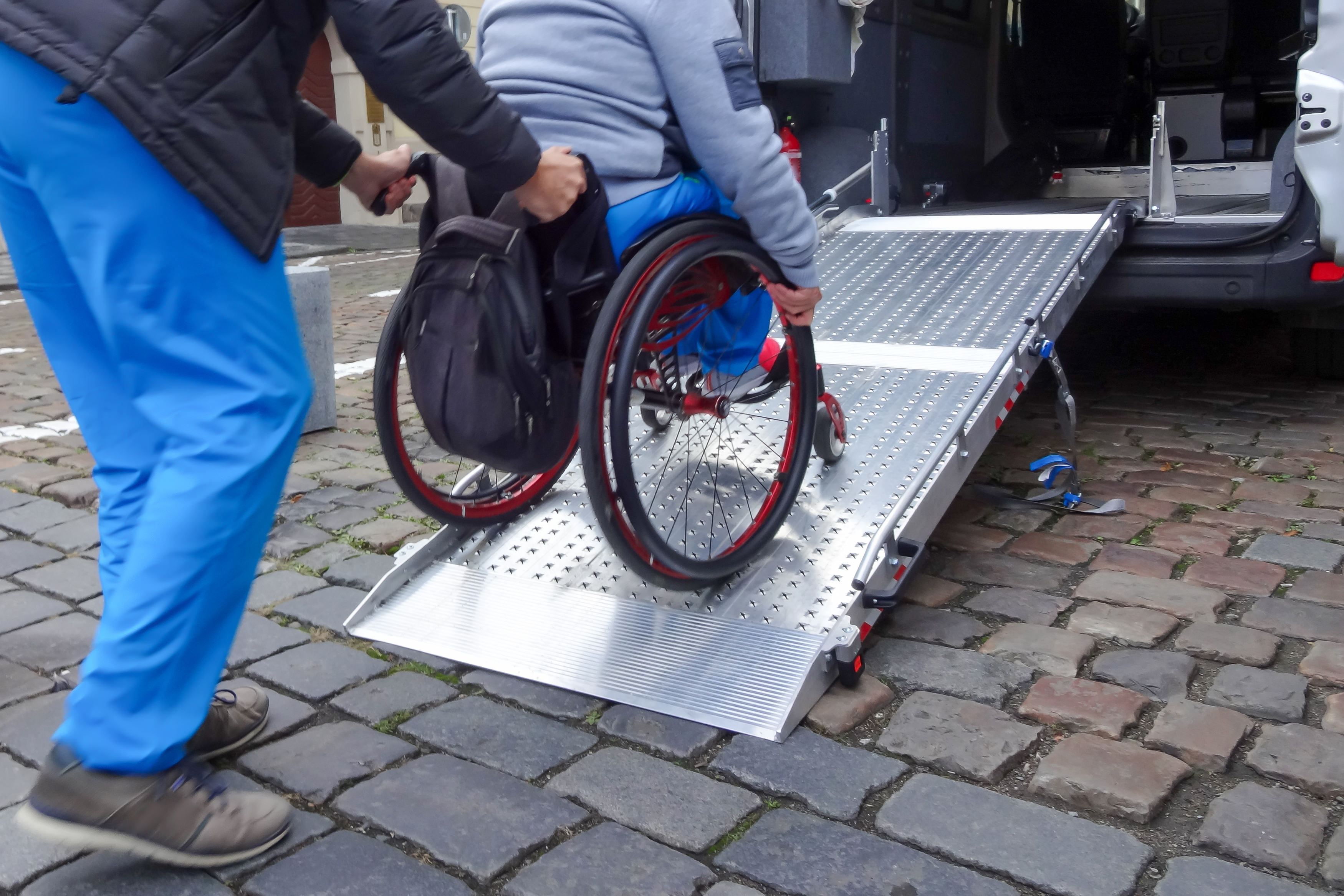NHS urged to do more to help patients leave hospital safely

Ahead of winter, when demand for services increases and when there is pressure on trusts to discharge patients as quickly as possible, we have looked again at what people are telling us about leaving hospital.
This article looks at:
- What people told us
- What is hospital discharge
- Current Government guidance
- Our research
- Key findings
- Our calls for change
- Key themes in our research
What people told us:
Many people told us:
- they didn't feel ready to leave the hospital;
- they weren't asked if they needed transport to the place they were discharged to;
- they weren’t given contact information for further help or advice when leaving the hospital.
What is hospital discharge?
Hospital discharge is the process of leaving the hospital after treatment, either to the patient's home or to another health or care facility. It is a crucial stage in people's health and care journey.
Discharge rates and processes have implications for other services. For example, patients who leave the hospital free up beds so people who need care can be admitted more quickly from A&E to wards, reducing pressure on emergency departments and speeding up ambulance handovers.
However, when people are discharged too early or are not given the proper support or information, pressures on services can increase, with patients going back to the hospital or turning elsewhere such as to their GP. This is both frustrating for patients and adds to the workload of already stretched NHS staff.
NHS bodies and local authorities should work together to ensure people move safely out of the hospital to the right place at the right time, with the support they need.
Current government guidance
The Government guidance on safe hospital discharge states:
- Hospital discharge teams should ensure people have transport to return home or move to another facility. Staff makes arrangements to ensure there is transport for people to return home from the hospital, via family or carers where appropriate or suitable, voluntary sector, or taxi and, only as a last resort, non-emergency patient transport services (NEPTS).
- Health and social care professionals should give ‘safety netting’ information on discharge, including the contact details of their discharge team for people leaving the hospital as well as their carers.
However, our new research suggests that many people leave the hospital without the right support or information, or are not always asked if they need transport to get to the place they are discharged to.
Our research
Following our work with the British Red Cross in 2020, we conducted a survey this autumn to learn about people’s recent experiences of hospital discharge.
Thank you to everyone who has taken part in our survey. We have heard from 583 people (including 175 carers) who have been through the hospital discharge process in the past 12 months.
Key findings
- Over half, 59%, of people said the hospital discharge team didn't ask if they needed support in getting transport to the place they were discharged to, contrary to government guidance
- People discharged either in the early hours, before 9 am, or late, after 6 pm, were significantly less likely to be asked if they needed transport.
- Over half, 51%, of people weren’t given contact information for further help or advice when leaving the hospital, contrary to government guidance
- Nearly a third, 32%, felt unprepared at discharge.
- Carers were more likely than patients to say they didn't feel prepared at discharge (44% of carers, 25% of patients).
- Over one in ten, 11%, had to wait over 12 hours after being told they were well enough to leave the hospital.
- Over one in five, 24% reported an excellent hospital discharge experience, with 37% reporting either a mixed or neutral experience.
Our calls for change
Health and care leaders must see hospital discharge in the context of the whole health and social care system.
The Government should provide additional resources to support NHS and social care teams to ensure discharge procedures are closely followed, even during times of pressure. People tell us that when this doesn't happen, they require readmission or turn to other services, such as GPs, for support.
We are calling for:
- The Government to update its hospital discharge and community support guidance. It must include new minimum standards on transport waiting times and post-discharge contact times.
- Integrated Care Boards (ICBs) to be consistent in implementing the latest hospital discharge guidance, including:
- Supporting people to make informed choices by providing contact information and advice and asking about transport home;
- Better signposting to support services, including voluntary organisations and services that support unpaid carers;
- Dedicated staff who will make travel arrangements;
- Points of contact for people to use if their condition gets worse;
- Greater involvement of family and carers in decisions about people discharge.
- Urgent government reform of the social care system to ensure councils and providers have the staff, skills, and resources to support people to live independently, including reablement support at home or in residential care following discharge from the hospital.
- ICBs to focus on workforce solutions in secondary care, including a review of staff retention policies and the development of plans to increase the capacity of administrative staff in local NHS trusts. Admin staff should act as points of contact for those coming into and leaving the hospital and support the work of 'transfer of care' hubs
- NHS Digital to capture and report data on deterioration in health at seven and 30 days after discharge, to understand where discharge processes are not always working for patients. This includes collecting data on emergency readmissions, death after discharge, and contact with another health service about the same condition.
Key themes in our research
In addition to the questionnaire, which provided us with the above data, we analysed more detailed stories from 430 people, shared either through our webform or a local Healthwatch branch. The stories helped us identify the following themes:
- When hospital discharge works well
- Delays to leaving hospital
- Leaving hospital
- Leaving at the right time
- Transport arrangements
- Ongoing support
When hospital discharge works well
People were significantly more likely to report a good experience if they:
- Felt prepared for the discharge process.
- Were given information about whom to contact if they had any further questions.
- Were discharged between 9am-6pm.
- Were offered support in arranging transport.
- Had a discharge assessment.
- Carers and loved ones were involved.
“My husband had a stent fitted after a heart attack. He stayed in hospital 48 hours. When he was discharged, the cardiac centre assigned a nurse to him and she took him down to the entrance of the cardiac centre. They both waited together until I arrived as already arranged. The nurse checked with me that I was willing to care for him and that we were OK to book a taxi, which then arrived at the door where he was seated and waiting. Excellent care.” Woman, aged 50-64, carer.
Delays to leaving hospital
NHS data shows that in September 2023, 14% of patients waited more than one day to be discharged from hospital after they were ready. Almost four per cent of patients waited longer than one week.
People shared their frustrations about delayed discharge from hospital, with some saying they had to wait multiple hours for their medication. In one example, a bed-bound person with muscular dystrophy shared the impact that delayed discharge had:
“From 3pm [I] waited, being told the ambulance was running late, but it was booked. I was in so much pain and begged to find out why they were taking so long. ... I had to use a bedpan, they stripped the bed and all the wet sheets and bedpan [were] left for hours on floor smelling.” Healthwatch Shropshire
Preparing to leave hospital
People told us about being discharged without adequate care and support plans. We heard about people at risk of falls being discharged without a plan to make their home safe, and some didn’t have their equipment fitted in time.
My father is 80 years old and in poor health. … He has had several falls and accidents trying to get to the toilet. He struggles with getting in and out of the bath to have a shower. When he was discharged from hospital, they said that someone would come to assess his home for equipment to help – but this has not happened.
We also heard about people being sent home in inappropriate clothing, including people leaving in only a hospital gown and without shoes.
“When the family collected her on the morning of discharge, [she] was still dressed in hospital night gown, wearing socks, no shoes, given a blanket and a stick… no wheelchair. The family struggled to get her home.” Healthwatch Devon
Other people told us about being sent to their home without food, being unable to go shopping themselves and lacking a support network to help.
“[They were] discharged home without food or any way of getting food. Coordination with the Neighbourhood care group did not take place and they are unable to access the property to provide a shopping service.” Healthwatch Richmond upon Thames
Carers also shared their frustrations at not being involved in discharge planning. We heard from carers who weren’t told about plans to discharge their loved ones until the day they were expected to collect them.
Where relevant, unpaid carers should be consulted on whether they are willing and able to provide support, and they should be involved in conversations about the care needs of the person being discharged.
Leaving at the right time
In our insight data, we heard about the impact of poorly timed discharge, including one example where someone was left locked out of her flat during winter.
“Mother-in-law [was] discharged home at approximately 1.30am. [She was] taken home by hospital transport who just dropped her off outside the flats and did not see that she got in OK. She was found wandering about outside about one hour later by a carer going into another resident in the flats. Mother-in-law has dementia and couldn't remember the four-digit pin code for the external door. It was -5 degrees that night. I dread to think what could have happened if the carer hadn't found her.” woman, aged 50-64, carer

Transport arrangements
In 2020, our research showed that a large proportion of people discharged at night were not being asked if they needed transport support, suggesting that this issue isn’t improving over time.
“Discharge was not good. [I] spent 2 days on discharge lounge as no care package could be arranged – and no transport, even though they knew first thing in the morning.” Healthwatch England, a disabled woman.
In another example, a person was quoted £1000 for private ambulance travel, after being denied transport support to a care home in a different county.
Ongoing support
Only 18% of the people that responded to our questionnaire were contacted by a health or social care professional to assess their support needs after the discharge process. However, over half, 51%, of those that had a discharge assessment also reported a good overall experience of the discharge process, compared to just 17% of those that didn’t.
In our insight data, we heard from people that felt they’d been discharged too quickly. We also head about people being readmitted immediately after discharge, either because they didn’t have the right support in place or because their condition deteriorated.

Get the latest insight
Stay up to date with what people are telling us about health and social care.


